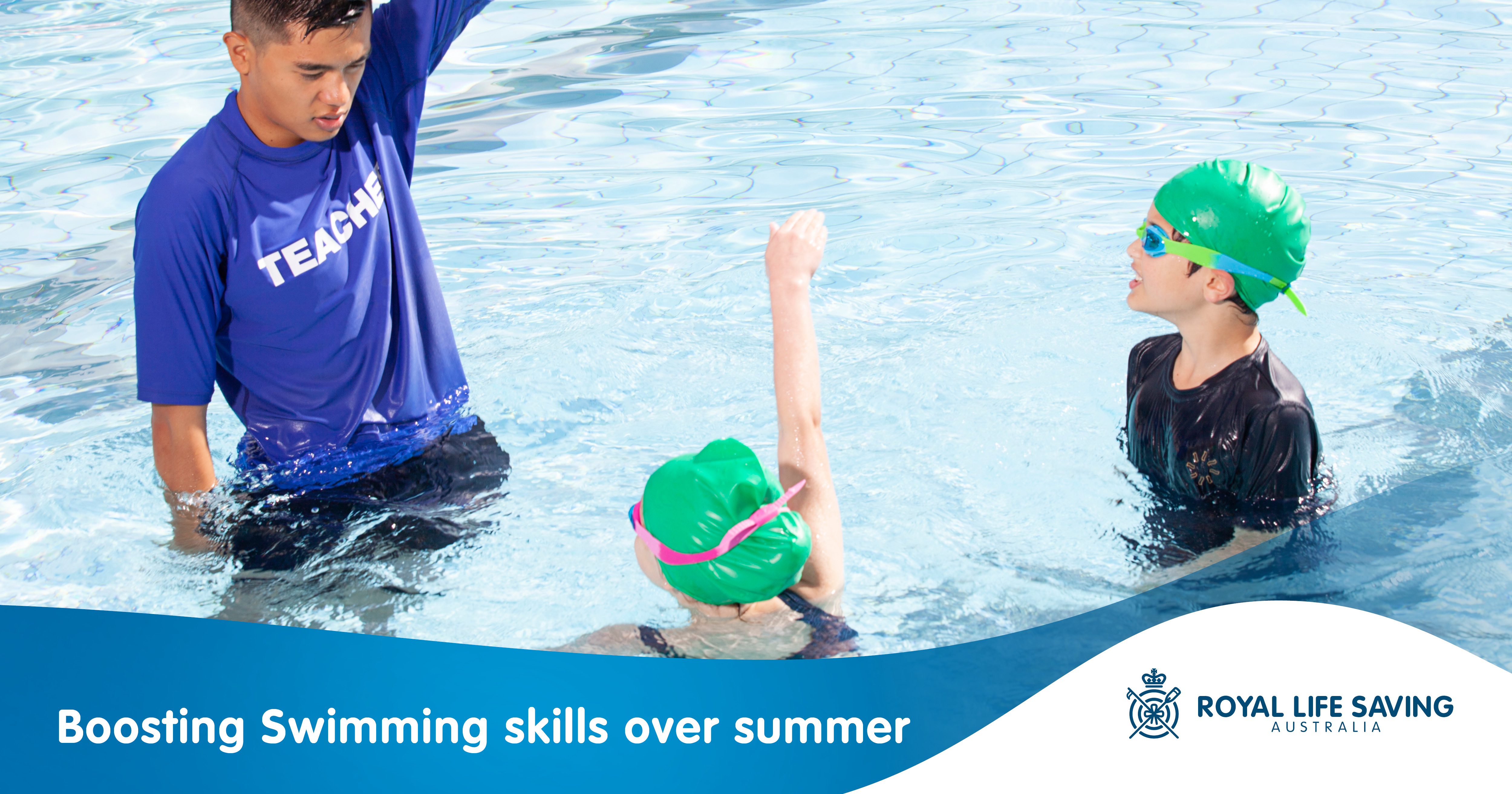Published 17 December 2021

We usually associate swimming with summer and it’s the perfect time to hone those swimming skills. As with learning any skill, regular practice is vital to develop confidence and competence as well as building fitness and endurance.
There are several ways you can really boost your children’s swimming skills to the next level and now’s the time to take the plunge.
- Intensive swim lessons
Throughout the summer holidays there are several government subsidised vacation swim programs as well as intensive swim programs conducted by swim school operators at local aquatic facilities and venues.
Usually, these programs are conducted over a series of consecutive days; often five to ten days with lessons running for 30 to 60 minutes in duration. The intensive and regular nature of these programs will help to fast-track children’s swimming skills.
Children can create building blocks for the development of skills progressively and quickly retain the skills and knowledge learnt each day. For some children, their achievement through learning swimming every day can be equivalent to a month’s worth of once-a-week lessons or more.
- Private swim lessons
If your child is struggling to grasp skills, progress to the next level or is fearful, private swimming lessons may be an option to consider. Although the cost may be substantially more than a group lesson, some children may only need a few private lessons to boost confidence and get them on track.
One-on-one teacher to student attention can focus on difficult skills particularly those that require complex motor skills and coordination. Children will get maximum lesson time and personal feedback during private lessons.
- Encouraging play in water
Play is an important part of children’s development and should not be under-estimated. Experiences of play allow for exploration, self-discovery and problem solving without constant adult instruction and direction. Play can build confidence in multiple domains including physical, emotional, mental and social, so providing lots of opportunities to play in the water for pure enjoyment with no real objective is beneficial.
It is important to ensure play should be in a safe water environment suitable for the child’s age, skills, and abilities with active adult supervision.
- Experience a range of aquatic environments
Most swimming lesson experiences are conducted in a purpose-built facility which is important for the early years so children feel safe, comfortable, and can achieve the fundamental skills. Once children have built a high level of confidence and are competent in swimming a stroke, it’s time to provide experiences in other aquatic environments such as lakes, ocean pools or waterholes.
Transitioning skills learnt in pools may take some time and some children may find it difficult to replicate their swimming skills and confidence in other environments. Start off with a gradual transition in calm conditions and where they can stand. Only swim in areas designated for swimming and watch for changing conditions. Look out for lessons or programs that are offered in different environments such as lakes, rivers or at the beach as these are a great way to start the transition.
Remember, regardless of what swimming lessons your child has had, it is important to actively supervise children in and around water.
